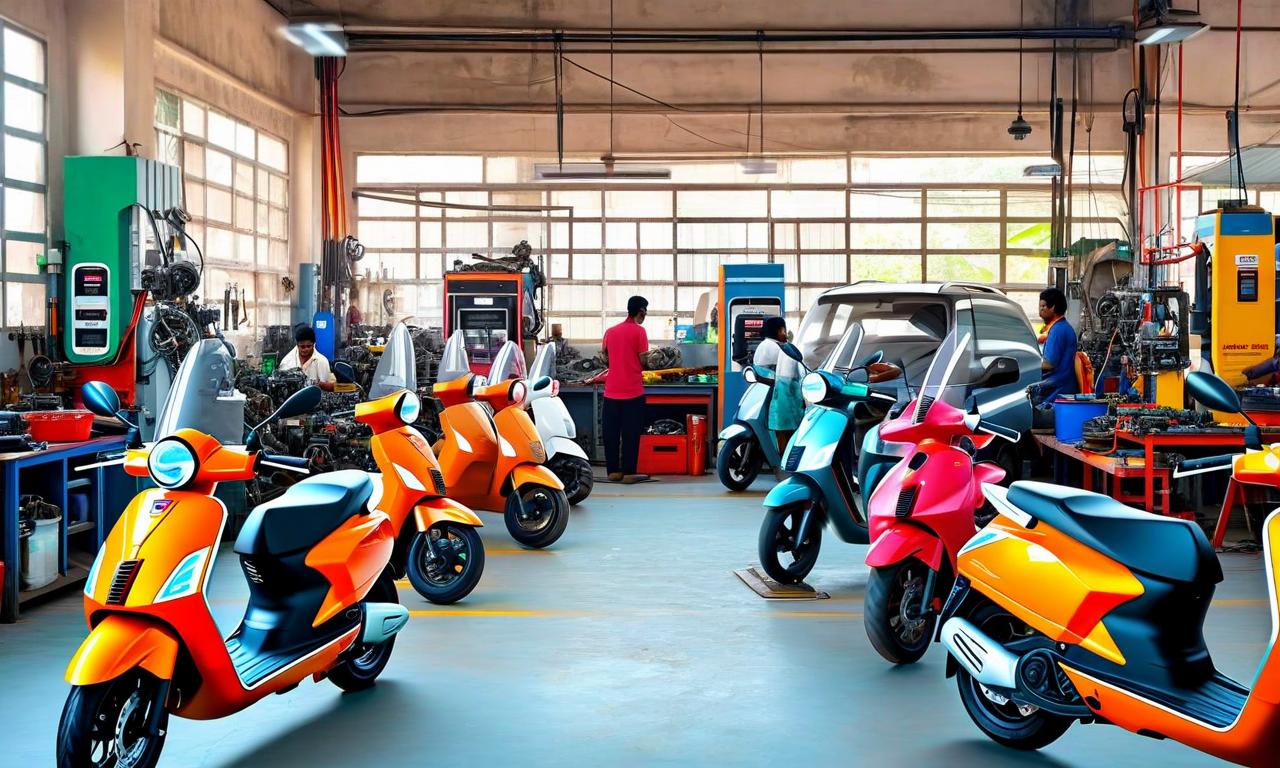Auto Sales Slow as Buyers Anticipate GST Rate Cuts
The Indian automobile industry is experiencing a significant slowdown in bookings across various segments, including two-wheelers, passenger vehicles, and tractors. Customers are delaying purchases in anticipation of potential Goods and Services Tax (GST) rate reductions. While customer inquiries remain healthy, actual booking activity has declined. The uncertainty surrounding GST rates is disrupting near-term demand, particularly affecting rural markets as awareness spreads. Dealers expect new GST rates to apply to existing inventories. The medium and heavy commercial vehicle segment remains largely unaffected. The government is considering restructuring the GST system, potentially reducing rates for small cars and two-wheelers from 28% to 18%, pending GST Council approval.

*this image is generated using AI for illustrative purposes only.
The automobile industry in India is experiencing a significant slowdown in bookings as customers delay their purchases in anticipation of potential Goods and Services Tax (GST) rate reductions. This trend is affecting various segments of the auto market, including two-wheelers, passenger vehicles, and tractors.
Market Sentiment
According to dealer checks conducted by Nuvama Institutional Equities, customer inquiries remain healthy across the board. However, there's a noticeable decline in actual booking activity. The Federation of Automobile Dealers Associations (FADA) has reported that the uncertainty surrounding GST rates is disrupting near-term demand in the sector.
Rural Market Impact
In rural markets, awareness of the potential GST changes is currently limited. However, news about possible rate cuts is spreading rapidly, which could further impact purchasing decisions in these areas.
Dealer Expectations
Dealers are anticipating that any new GST rates will be applicable to existing inventories. This expectation is fostering hope that sentiment could improve without negatively affecting profit margins once the new rates are implemented.
Segment-wise Impact
- Two-wheelers, Passenger Vehicles, and Tractors: These segments are experiencing reduced booking activity despite healthy customer inquiries.
- Medium and Heavy Commercial Vehicles: This segment remains largely unaffected by the GST uncertainty. For fleet operators in this category, GST is typically a pass-through cost, which explains the minimal impact on demand.
Proposed GST Restructuring
The government is considering a proposal to restructure the GST system. The key points of this proposal include:
- Restructuring GST into 5% and 18% brackets
- Creating a separate 40% slab for luxury goods
- Potentially reducing GST on small cars and two-wheelers from the current 28% to 18%
It's important to note that this proposal is still pending approval from the GST Council.
Industry Outlook
The current situation presents a complex scenario for the automobile industry. While the potential GST rate cuts could stimulate demand in the long run, the short-term uncertainty is causing a noticeable slowdown in sales. Manufacturers and dealers are likely to face challenges in managing inventory and sales targets until the GST Council reaches a decision.
As the industry awaits clarity on the GST rates, it remains to be seen how quickly consumer sentiment will recover once the new rates are announced and implemented. The coming months will be crucial for the auto sector as it navigates through this period of policy uncertainty and changing consumer behavior.






























